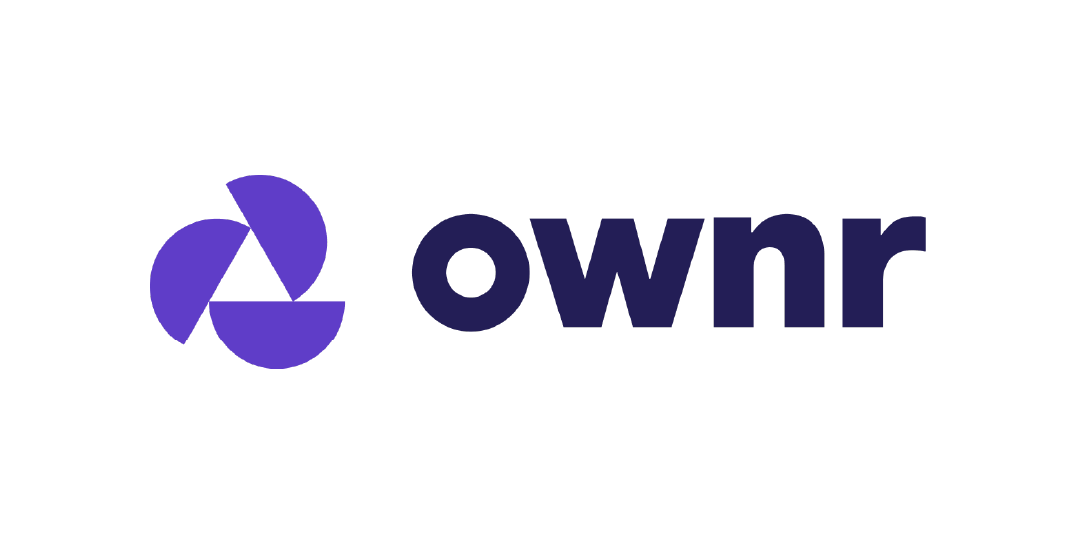GOOGLE ADS MANAGEMENT
ALL SERVICES- GRAPHIC DESIGN & BRANDING
➥ WEBSITE DESIGN TORONTO
➥ TORONTO LOGO DESIGN
➥ BROCHURE GRAPHIC DESIGN
➥ INFOGRAPHIC DESIGN
➥ BUSINESS CARD DESIGN
➥ PACKAGE DESIGN TORONTO
➥ ILLUSTRATION DESIGN
➥ ADVERTISING POSTER DESIGN
➥ BRANDING STRATEGY & SERVICES- ➤ VIEW ALL SERVICES
WEB DEVELOPMENT & SUPPORT
➥ CUSTOM WEB DESIGN TORONTO
➥ ECOMMERCE WEBSITE DESIGN TORONTO
➥ WEBSITE MAINTENANCE SERVICES
➥ SHOPIFY WEBSITE DESIGN
➥ SHOPIFY EXPERTS TORONTO
➥ WORDPRESS DEVELOPMENT
➥ WORDPRESS MAINTENANCE- ➤ VIEW ALL SERVICES
WEBSITE MARKETING & CONTENT
➥ SEO PACKAGES TORONTO
➥ TORONTO SOCIAL MEDIA AGENCY
➥ CONTENT MARKETING TORONTO
➥ PPC MANAGEMENT TORONTO
➥ AFFILIATE MARKETING CANADA
➥ STRATEGIC CONSULTATION- ➤ VIEW ALL SERVICES
ABOUT
RESOURCES- LET’S CHAT
Questions? Call us at
647-348-4995

GOOGLE ADS MANAGEMENT
ALL SERVICES- GRAPHIC DESIGN & BRANDING
➥ WEBSITE DESIGN TORONTO
➥ TORONTO LOGO DESIGN
➥ BROCHURE GRAPHIC DESIGN
➥ INFOGRAPHIC DESIGN
➥ BUSINESS CARD DESIGN
➥ PACKAGE DESIGN TORONTO
➥ ILLUSTRATION DESIGN
➥ ADVERTISING POSTER DESIGN
➥ BRANDING STRATEGY & SERVICES- ➤ VIEW ALL SERVICES
WEB DEVELOPMENT & SUPPORT
➥ CUSTOM WEB DESIGN TORONTO
➥ ECOMMERCE WEBSITE DESIGN TORONTO
➥ WEBSITE MAINTENANCE SERVICES
➥ SHOPIFY WEBSITE DESIGN
➥ SHOPIFY EXPERTS TORONTO
➥ WORDPRESS DEVELOPMENT
➥ WORDPRESS MAINTENANCE- ➤ VIEW ALL SERVICES
WEBSITE MARKETING & CONTENT
➥ SEO PACKAGES TORONTO
➥ TORONTO SOCIAL MEDIA AGENCY
➥ CONTENT MARKETING TORONTO
➥ PPC MANAGEMENT TORONTO
➥ AFFILIATE MARKETING CANADA
➥ STRATEGIC CONSULTATION- ➤ VIEW ALL SERVICES
ABOUT
RESOURCES- LET’S CHAT
Questions? Call us at
647-348-4995

GOOGLE ADS MANAGEMENT
ALL SERVICES- GRAPHIC DESIGN & BRANDING
➥ WEBSITE DESIGN TORONTO
➥ TORONTO LOGO DESIGN
➥ BROCHURE GRAPHIC DESIGN
➥ INFOGRAPHIC DESIGN
➥ BUSINESS CARD DESIGN
➥ PACKAGE DESIGN TORONTO
➥ ILLUSTRATION DESIGN
➥ ADVERTISING POSTER DESIGN
➥ BRANDING STRATEGY & SERVICES- ➤ VIEW ALL SERVICES
WEB DEVELOPMENT & SUPPORT
➥ CUSTOM WEB DESIGN TORONTO
➥ ECOMMERCE WEBSITE DESIGN TORONTO
➥ WEBSITE MAINTENANCE SERVICES
➥ SHOPIFY WEBSITE DESIGN
➥ SHOPIFY EXPERTS TORONTO
➥ WORDPRESS DEVELOPMENT
➥ WORDPRESS MAINTENANCE- ➤ VIEW ALL SERVICES
WEBSITE MARKETING & CONTENT
➥ SEO PACKAGES TORONTO
➥ TORONTO SOCIAL MEDIA AGENCY
➥ CONTENT MARKETING TORONTO
➥ PPC MANAGEMENT TORONTO
➥ AFFILIATE MARKETING CANADA
➥ STRATEGIC CONSULTATION- ➤ VIEW ALL SERVICES
ABOUT
RESOURCES- LET’S CHAT
Questions? Call us at
647-348-4995

GOOGLE ADS MANAGEMENT
ALL SERVICES- GRAPHIC DESIGN & BRANDING
➥ WEBSITE DESIGN TORONTO
➥ TORONTO LOGO DESIGN
➥ BROCHURE GRAPHIC DESIGN
➥ INFOGRAPHIC DESIGN
➥ BUSINESS CARD DESIGN
➥ PACKAGE DESIGN TORONTO
➥ ILLUSTRATION DESIGN
➥ ADVERTISING POSTER DESIGN
➥ BRANDING STRATEGY & SERVICES- ➤ VIEW ALL SERVICES
WEB DEVELOPMENT & SUPPORT
➥ CUSTOM WEB DESIGN TORONTO
➥ ECOMMERCE WEBSITE DESIGN TORONTO
➥ WEBSITE MAINTENANCE SERVICES
➥ SHOPIFY WEBSITE DESIGN
➥ SHOPIFY EXPERTS TORONTO
➥ WORDPRESS DEVELOPMENT
➥ WORDPRESS MAINTENANCE- ➤ VIEW ALL SERVICES
WEBSITE MARKETING & CONTENT
➥ SEO PACKAGES TORONTO
➥ TORONTO SOCIAL MEDIA AGENCY
➥ CONTENT MARKETING TORONTO
➥ PPC MANAGEMENT TORONTO
➥ AFFILIATE MARKETING CANADA
➥ STRATEGIC CONSULTATION- ➤ VIEW ALL SERVICES
ABOUT
RESOURCES- LET’S CHAT
Questions? Call us at
647-348-4995
![]()
![]()
![]()

- August 24, 2024
-
 Amine Rahal
Amine Rahal
At Little Dragon Media, a lot of clients and prospects often ask us if they should invest in SEO or Google Ads. Now, while our answer is always “If you can afford it, you should do both!” (for several reasons) we understand that some businesses are dealing with a small budget and can only afford one of these marketing channels. If that’s your situation, I would respond by saying: “it depends on the KD (Keyword Difficulty) and CPC (Cost-Per-Click) of your main keywords“. I’ll dive more deeply into that in this article…
Understanding the Pros & Cons
When deciding between SEO (Search Engine Optimization) and Google Ads (formerly known as AdWords), it’s crucial to understand the pros and cons of each approach and how factors like Cost Per Click (CPC) and Keyword Difficulty (KD) can influence your decision. Below is a comparison that outlines these aspects, followed by a discussion on the importance of integrating both strategies.
SEO vs. Google Ads: Pros and Cons
| Aspect | SEO (Search Engine Optimization) | Google Ads (Pay-Per-Click Advertising) |
|---|---|---|
| Cost | Generally lower ongoing costs, but requires time and resources for optimization and content creation. | Higher initial costs; you pay for each click, which can add up quickly, especially in competitive markets. |
| Time to Results | SEO typically takes longer to see results, often several months. | Google Ads can deliver immediate results as soon as the campaign is live. |
| Sustainability | Long-term benefits; once rankings are achieved, they can provide consistent traffic with minimal ongoing costs. | Short-term results; traffic stops as soon as the ad budget runs out. |
| Click-Through Rate (CTR) | Organic listings often have higher CTRs compared to ads. | Ads appear at the top of search results, which can drive clicks, but they may be skipped by users who prefer organic results. |
| Keyword Targeting | Requires optimizing for specific keywords, with a focus on relevance and content quality. | Allows precise targeting based on specific keywords, demographics, location, audience segments and more. |
| Scalability | SEO is somewhat scalable but requires more content and backlinks to target additional keywords. | Highly scalable; you can quickly increase budget and target more keywords or audiences. |
| Trust and Credibility | Users tend to trust organic results more, as they perceive them as more credible. | Ads can be effective, but some users may skip them, perceiving them as less trustworthy. |
| Competitiveness | Competition can be high for popular keywords, but lower KD keywords can be easier to rank for. | High competition can lead to high CPCs, making it expensive to compete for top ad positions. |
The Role of CPC and KD in Deciding Between SEO and Google Ads
Now, let’s get to the meat of the topic: we at Little Dragon always look at the KD (Keyword Difficulty) and average CPC (Cost-Per-Click) to know whether SEO or Google Ads is more appropriate for our clients’ budgets.
For instance, let’s take a “Wildlife Removal Company” as an example here. Look at the KD and CPC metrics for the keywords “Raccoon Removal”, “Wildlife Removal” and other similar keywords in Canada:

What does this chart tell you?
Well, you can see how the KD is extremely low, meaning it’s VERY easy to rank organically for these keywords through SEO, whereas the CPC is quite high, reaching an average of $4.50 per click for “Raccoon Removal” (will probably be even higher in competitive cities like Toronto, Calgary and Vancouver).
This means that if a client in the wildlife removal space reaches out to us, with a limited budget, and asks where they should put their money first, we would definitely recommend SEO! Now, the downside is SEO does take more time, so patience is needed. Google Ads and PPC in general is more immediate. That’s why a lot of clients often prefer to go this route.
Summary
- High CPC and Low KD: If a keyword has a high CPC but low Keyword Difficulty (KD), it may be more cost-effective to focus on SEO. Since the keyword is easier to rank for organically, you can potentially save significant money by not paying the high cost per click in a Google Ads campaign.
- Low CPC and High KD: For keywords with low CPC but high KD, Google Ads might be a better choice. The lower CPC makes it affordable to run ads, while the high KD indicates that ranking organically could be challenging and resource-intensive.
- High CPC and High KD: Keywords that are both expensive to bid on and difficult to rank for may require a combination of both strategies or focusing on less competitive keywords.
- Low CPC and Low KD: These keywords present an opportunity to capitalize on both SEO and Google Ads, given their affordability and ease of ranking.
Why You Should Consider Both SEO and Google Ads
As I said before, I always recommend that clients do both SEO and Google Ads, since it gives us the opportunity to own more than one listing on the first page of Google, Bing and other search engines when people search for our target keywords. When doing both, you can benefit from:
- Maximized Exposure: Using both strategies allows your brand to dominate the search engine results pages (SERP’s) by appearing in both organic listings and paid ads. This can significantly increase your visibility, credibility AND sales.
- Diversified Traffic Sources: Relying solely on one channel can be risky. It’s never good to put all your eggs in one basket! By investing in both SEO and Google Ads, you ensure that you have multiple streams of traffic. If one channel underperforms, the other can help maintain overall traffic levels.
- Enhanced Brand Authority: Consistent presence in both organic and paid search results reinforces brand authority. Users are more likely to trust and engage with a brand they see frequently across multiple touchpoints.
- Testing and Optimization: Google Ads allows for quick testing of keyword effectiveness, which can inform your SEO strategy. Conversely, insights from SEO can help refine your Google Ads targeting and messaging. There’s huge synergy here.
Conclusion
Both SEO and Google Ads have unique advantages and can complement each other very well. When deciding where to allocate your marketing dollars in 2024, consider the CPC, KD, and the overall goals of your business. If possible, integrating both strategies will maximize your visibility, drive more traffic, and enhance your brand’s online presence.
When in doubt, speak to a search engine marketing company (*ahem* like us *ahem*) and they will analyze your website, industry and keywords to design the best possible digital marketing strategy for your company.

Tech Entrepreneur, Author, and CEO of Little Dragon Media. Passionate about entrepreneurship, philanthropy, digital marketing, blockchain, finance, investing, health fitness & nonprofits.
RECENT POSTS
- Zensurance – Good Business Policy? Read a Review From a Client…
- Top 9 Best Canadian Affiliate Marketing Programs & Offers
- Ownr – Legit or No? We Review The Company, Service & Fees
- 10 Small Business Loans & Financing Options in Ontario
- Top 11 Canadian Business Bank Accounts (Comparing Fees & Reviews)

Ready to chat about how Little Dragon Media can enhance your business?
Call us now at 647-348-4995 or

OUR AWARDS & CERTIFICATIONS

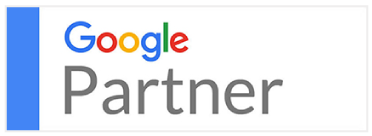
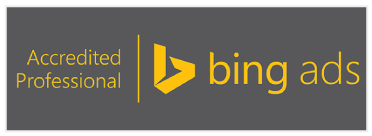

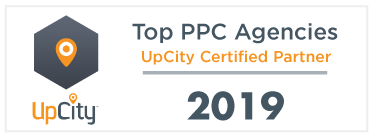

WHAT OUR CLIENTS ARE SAYING

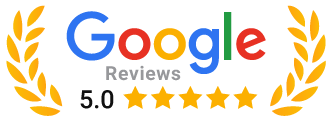

Little Dragon Media's professionalism and commitment to delivering excellence are truly commendable. I highly recommend their services... Thank you for your stellar work!
- Delna Bharucha

Little Dragon Media worked on developing our logo and website. They did an absolutely AMAZING job on both projects. These guys ROCK and you won't be disappointed.
- Sonia Nutt

My team had a great experience working with Little Dragon Media. We will certainly engage with Little Dragon Media for any additional projects in the future. Highly recommend!
- Carly Rooney



- 682A St-Clair West Toronto, ON M6C 1B1
- (647)-348-4995
- info@littledragon.ca
MOST POPULAR SERVICES
RECENT POSTS
GET MORE CLIENTS
Don't let your competitors take over. We'll help you climb to the top and get more clients.



- 682A St-Clair West Toronto, ON M6C1B1
- (647)-348-4995
- info@littledragon.ca
MOST POPULAR SERVICES
RECENT POSTS
GET MORE CLIENTS
Don't let your competitors take over. We'll help you climb to the top and get more clients.

Contact | Press Mentions | Privacy Policy | Terms of Service
© 2024 Little Dragon Media. All Rights Reserved.



